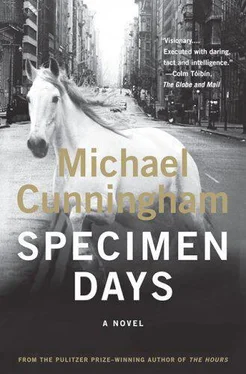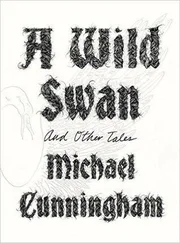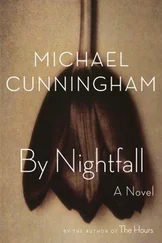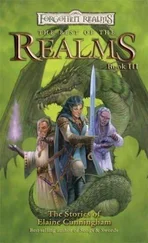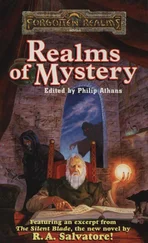Michael Cunningham - Specimen Days
Здесь есть возможность читать онлайн «Michael Cunningham - Specimen Days» — ознакомительный отрывок электронной книги совершенно бесплатно, а после прочтения отрывка купить полную версию. В некоторых случаях можно слушать аудио, скачать через торрент в формате fb2 и присутствует краткое содержание. Город: New York, Год выпуска: 2005, ISBN: 2005, Издательство: Farrar, Straus and Giroux, Жанр: Современная проза, на английском языке. Описание произведения, (предисловие) а так же отзывы посетителей доступны на портале библиотеки ЛибКат.
- Название:Specimen Days
- Автор:
- Издательство:Farrar, Straus and Giroux
- Жанр:
- Год:2005
- Город:New York
- ISBN:0-374-70515-1
- Рейтинг книги:4 / 5. Голосов: 1
-
Избранное:Добавить в избранное
- Отзывы:
-
Ваша оценка:
- 80
- 1
- 2
- 3
- 4
- 5
Specimen Days: краткое содержание, описание и аннотация
Предлагаем к чтению аннотацию, описание, краткое содержание или предисловие (зависит от того, что написал сам автор книги «Specimen Days»). Если вы не нашли необходимую информацию о книге — напишите в комментариях, мы постараемся отыскать её.
Specimen Days — читать онлайн ознакомительный отрывок
Ниже представлен текст книги, разбитый по страницам. Система сохранения места последней прочитанной страницы, позволяет с удобством читать онлайн бесплатно книгу «Specimen Days», без необходимости каждый раз заново искать на чём Вы остановились. Поставьте закладку, и сможете в любой момент перейти на страницу, на которой закончили чтение.
Интервал:
Закладка:
Lucas cooked the sausage and the potato. He gave some to his father, took some in to his mother, who slept fitfully but slept. He decided it was best not to disturb her. He left the food on the bedside table, for when she awoke and wanted it.
After his father had finished, Lucas said, “Father, it’s time for bed.”
His father nodded, breathed, nodded again. He rose. He took the machine with him.
Lucas left his father in the doorway to the bedroom. His mother murmured within. His father said, “She cannot stop dreaming.”
“She sleeps. It’s what’s best for her.”
“She doesn’t sleep. She only dreams.”
“Hush. Go to sleep now. Good night, Father.”
His father went into the dark. The machine’s little feet scraped on the floorboards after him.
I wish I could translate the hints about the dead young men and women,
And the hints about old men and mothers, and the offspring taken soon out of their laps.
What do you think has become of the young and old
men?
And what do you think has become of the women and
children?
Lucas read his passage. He put out the light and went to sleep.
He dreamed he was in a room, an enormous room and clangorous. It was the works but not the works. It was full of silvery dusk like the works but empty of all save the noise, a deafening sound, not like what the machines produced, not quite that sound, though it resembled it. Lucas understood that the machines were gone but would return soon, as cattle return to a barn. He was to wait here. He was to see them home. He looked up something told him to look up and saw that the ceiling was covered in stars. There were the Great Horse, the Hunter, the Pleiades. He knew then that the stars were machinery, too. There was nowhere to go that was not the world, that was not the room. The stars moved mechanically, and something was descending, a dark shape from high in the night sky…
He turned and looked into a face. Its eyes were black pools. Its skin was stretched taut over its skull. It said, “My boy, my boy.”
His mother’s face was pressed to his. He was dreaming of his mother. He struggled to speak, but couldn’t speak.
The face said again, “My poor boy, what they done to ye.”
He was awake. His mother crouched beside his bed, with her face to his face. He felt her breath on his lips.
“I’m all right, Mother,” he said. “Nothing’s been done to me.”
She held the music box, cradled close. She said, “Poor child.”
“You’re dreaming,” Lucas told her.
“My poor, poor boys. One and then another and another.”
“Let me take you back to bed.”
“It’s greed that done it. Greed and weakness.”
“Come. Come back to bed.”
He rose and took her arm. She yielded, or did not resist. He led her out of the bedroom and through the parlor, where the faces watched. Her feet shuffled on the floor. He took her into the other bedroom. His father wheezed and gagged in his sleep.
Lucas helped his mother into bed, pulled the blanket up. Her hair was spread over the pillow. In the fan of dark hair her face was impossibly small, no bigger than his fist.
She said, “I should be dead with him.”
Lucas thought he could not help thinking of the bowl he’d bought. There were nineteen cents now, to keep them until Friday next. There wouldn’t be food for the week.
He said, “You’re safe. I’m here.”
“Oh, safe. If anyone were safe.”
“You must sleep now.”
“Do ye think sleeping is safe?”
“Shh. Just be quiet.”
He sat with her. He couldn’t tell if it was better to stroke her hand or refrain from stroking her hand. He rocked slightly, to calm himself. There was nothing so frightful as this. There was nothing, had been nothing, as terrible as sitting on his parents’ mattress, wondering if he should or should not touch his mother’s hand.
He knew he had to take the music box away. But what of Simon’s other point of ingress, their father’s breathing machine? Father needed the machine. Or did he?
Lucas didn’t know if the machine was crucial to his father or merely helpful. He hadn’t been told. It was possible, it was not impossible, that the breathing apparatus, which had been given as a gift, was in fact a bane. Could it be sucking his father’s life away, when it pretended to help him? Did any machine seem to want the good of its people?
Lucas stood, went as quietly as he could to his father’s side of the bed, and took up the machine. Its iron pole was cool to his touch. It was full of its song, as steady and unmistakable as the mice inside the walls. Gingerly, as he would take up a mouse by its tail, he carried the machine through the parlor and put it in the hallway. Was that far enough away? He hoped it was. In the twilight of the hall the machine was as indistinct as the goat’s skull. Its bladder, the size and shape of a turnip, was gray but subtly luminous. Its tube and mouthpiece dangled.
He would leave it there overnight. He would bring it back in the morning, when he’d seen how his father fared without.
He went into the parlor for the music box. He took it and put it in the hallway, beside his father’s machine, then returned to the parlor and locked the door. He checked to make sure it was fast.
When sleep found him again, it brought its dreams, though he recalled upon awakening only that they had involved children and a needle and a woman who stood far away, calling out across a river.
In the morning his father had not yet risen. Lucas went to his parents’ bedroom and cautiously opened the door. They were quieter than usual. His mother murmured over her dreams, but his father, who was ordinarily given to deep snorts and coughings, was silent.
He must need the machine. Lucas must hurry and bring it back.
When he went into the hallway to retrieve it, it was gone. Breathing machine and music box had vanished entirely.
He stood for a moment, confused. Had he dreamed of putting them there? He searched up and down the hall, wondering if they were only farther away. Perhaps he had gotten up during the night and moved them, somnambulistically. No. They were nowhere. He thought briefly that the mechanisms were more alive than he’d imagined, that they walked. Would they have found their way back into his parents’ bedroom? Would the music box be sitting at his mother’s side, singing a song she couldn’t bear to hear?
He summoned himself. He was agitated, but he was not insane. Someone had taken the machine and the music box, as people did. Nothing of any value could be left unattended. He had thought they’d be all right for those nocturnal hours, but someone had carried them off. Someone would be trying to sell them, as the boy had sold the china bowl.
Lucas returned to the parlor. What could he say to his father that his father would understand? He could think of nothing, and so he said nothing. He left his father and mother in their bedroom together. He hoped that when he returned from work, they might be restored to themselves.
Here it was, then: his own machine. He stood before it in the enormous room. Dan and Will and Tom were at theirs, tending them as they ever did, with the steady dispassionate attention of farmers.
Lucas whispered, “You were unworthy, you must admit it. You were untrue. I’m sorry you’re dead, but you can’t have Catherine with you. You must stop singing to Mother about your sorrows.”
The machine sang on. Its song didn’t vary. Lucas still couldn’t decipher the words, but he knew they were all about love and longing. Simon wanted more than he should rightfully have. Why would he be different dead than he was alive?
Читать дальшеИнтервал:
Закладка:
Похожие книги на «Specimen Days»
Представляем Вашему вниманию похожие книги на «Specimen Days» списком для выбора. Мы отобрали схожую по названию и смыслу литературу в надежде предоставить читателям больше вариантов отыскать новые, интересные, ещё непрочитанные произведения.
Обсуждение, отзывы о книге «Specimen Days» и просто собственные мнения читателей. Оставьте ваши комментарии, напишите, что Вы думаете о произведении, его смысле или главных героях. Укажите что конкретно понравилось, а что нет, и почему Вы так считаете.
